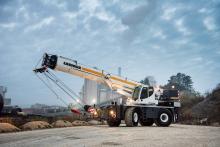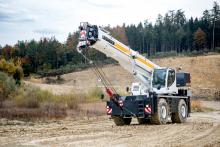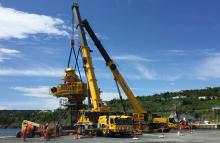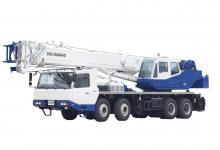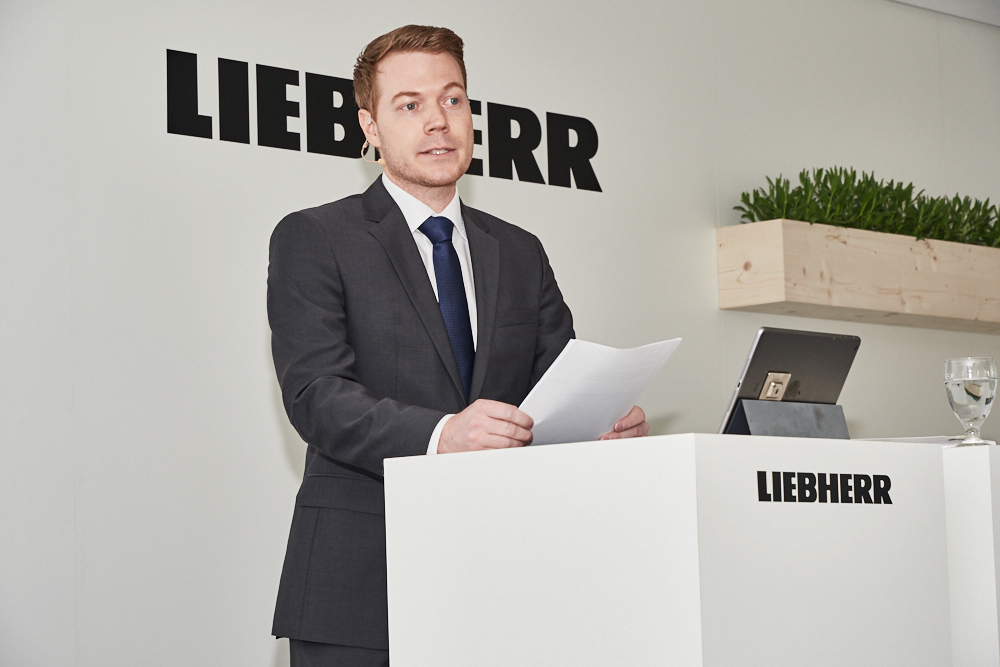
The Swiss-based company is focusing on the North American market with the launch of two mobile crane models, said Daniel Pitzer, head of Liebherr USA.
Around 80% of global sales for the 90tonne LRT 1090-2.1 and the 100tonne LRT 1100-2.1, unveiled at CONEXPO-CON/AGG, will likely be in North America, said Pitzer.
The LRT cranes will be the first mobile cranes to meet global safety standards and comply with all global regulations, such as: US standard ANSI B30.5, European EN 13000, Australian Standards (AS) and Russian GOST standard.
For both cranes, chassis and turntable are almost identical but there are differences in the boom length, telescoping technology, ballast weight and lifting capacity.
The VarioBase - variable support base - developed by Liebherr allows each outrigger beam to be extended to optional lengths. The crane work is controlled by the load moment limiter within the LICCON controller, which calculates the maximum load capacities precisely for the current situation. This prevents accidents by human error during the assembly process and when hoisting loads.
As a result of the increased lifting capacities when hoisting over the supports, the crane can lift loads normally reserved for the next higher crane class.
For safety, the crane cabin is 220mm wider than other standard cabins on the market. It also can be tilted backwards to provide greater comfort when hoisting loads to great height.
Both cranes have a
The 100tonne LRT 1100-2.1 has a 50m telescopic boom with a Telematik telescoping system on which the various telescoping sections can be extended independently with a single cylinder and then pinned to the telescopic section above. Counterweights of 14tonnes ensure high stability for the LRT 1100-2.1 which has a lifting capacity around 15% higher than that of the 90tonne model which features 12tonnes of counterweights.
The LRT 1090-2.1 features a 47m telescopic boom consisting of a two-stage hydraulic cylinder with a rope extension mechanism. Similar to the 100tonne model the boom can be extended easily with either the strong or long telescoping modes.

